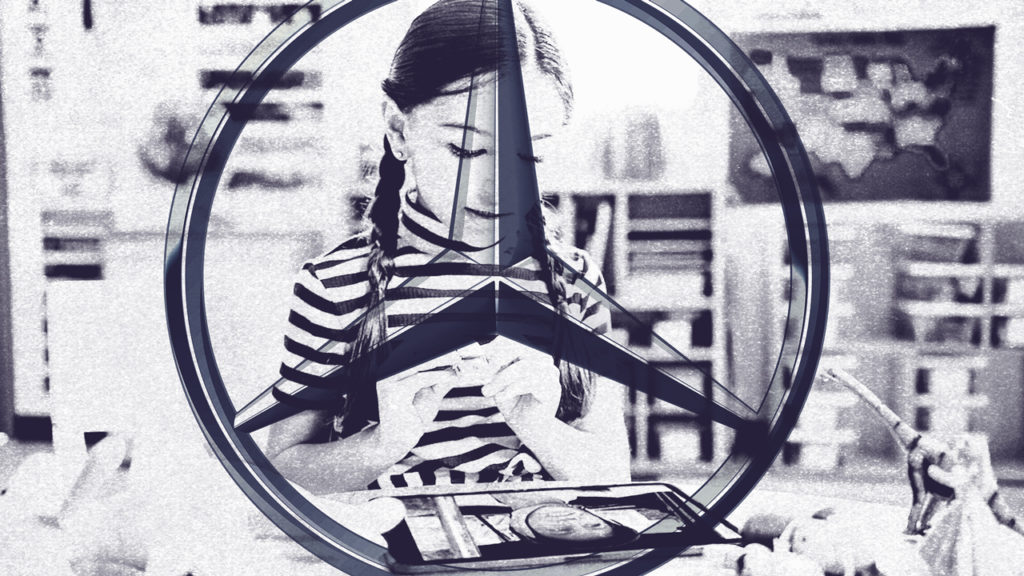Mercedes-Benz used a poignant video spot, “No Limits” to announce a cause marketing-driven partnership with Mattel to create and sell a toy car that aims to inspire young girls and challenge gender stereotypes. The spot comes after the company’s release of a short film in celebration of Women’s International History Month released this year.
The video shows little girls who can choose to play with any toy in front of them. When asked why she shunned the toy car in favor of dolls and unicorns, one girl says, “I think this is a boy’s toy because boys love cars and girls like girl stuff.” The producers then show them a video of Ewy Rosqvist, the first woman to win one of the world’s most difficult races—the Argentinian Touring Car Grand Prix—and the campaign’s source of inspiration. The female hero’s historic win shifts the girls’ perspective and arouses feelings of pride as one girl asserts, “Girls can be racers too.”
Mercedes-Benz and Matchbox will make a toy replica of Rosqvist’s car, which will be gifted to thousands of girls in first grade through a non-profit partner, and sold in stores nationwide beginning 2020. Proceeds from the sales will go towards the making and distribution of additional cars.
“Through Ewy’s story, we saw an opportunity to inspire young girls to ‘play outside the box’ and imagine all the different opportunities open to them without the restrictions of traditional stereotypes,” explained Mark Aikman, general manager of marketing services for MBUSA, adding that, “We realized that these pioneering women from our past could serve as valuable role models for young girls today and have a positive impact on how they see their future. This led us to collaborate with Matchbox to create a tangible reminder for girls that there are no restrictions on their tomorrow.”
To further the conversation about the early impact that gender associations have on girls, Mercedes-Benz will include with each toy a teaching toolkit to encourage parents and mentors to create valuable lessons about female role models, as a reminder to girls that they have no limits.
Mercedes’ previous “Impact” campaign video spot is another stellar example of its use of cause-marketing. The company understands that purpose can turn to profit. Nevertheless, it doesn’t lose sight of a millennial-focused strategy. To promote the Mercedes A-Class, aimed at a younger demo, the company featured a commercial during Super Bowl 52 starring rapper Ludacris in conjunction with an Instagram “Bucket List” campaign.
In most cases, cause marketing that spotlights a stand or message about a social issue is a surefire way to enforce a stronger bond between consumer and product. According to the 2018 IEG Sponsorship Report, cause sponsorship is predicted to reach $2.23 billion in 2019. Additionally, 64 percent of consumers who agreed it’s ‘extremely important’ for a company to take a stand on a social issue said they were ‘very likely’ to purchase a product based on that commitment, as reported by Shelton Group.

